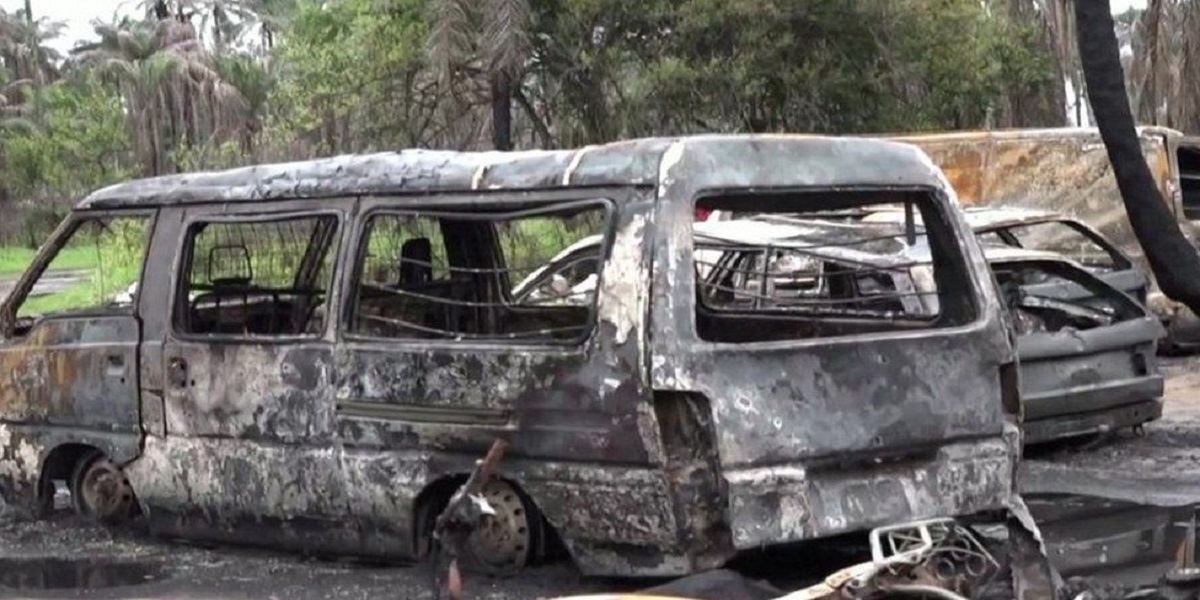Nigeria, IMO STATE, – The stench of rotten flesh hung in the air as dozens of burned bodies were buried in mass graves in Nigeria’s Imo state on Tuesday, after more than 100 people were killed in a weekend explosion at an illegal oil refinery.
At the scene of the explosion, a swampy open space surrounded by burnt out cars and palm palms, a group of men, some bare chested and without shoes, dug three graves with shovels.
Two local health officials fumigated the gravesite and surrounding area before the burial.
Men used makeshift stretchers to dump dead in shallow graves that quickly filled with water, with only plastic and flip flops covering their feet. There were no corpse bags deployed.
[embedpost slug=”-suspects-identified-of-nigeria-oil-refinery-blast/”]
“The bodies can’t be identified because of the explosion. The governor, His Excellency, instructed us to ensure that those who could not be identified by their family were buried “Marcel Amadioha, chairman of Imo state’s Ohaji-Egbema local government area, said as much.
According to Amadioha, some relatives were able to claim some dead and transport them to be buried, but more than 50 remained unclaimed.
A local leader, Ezechukwe Eze, spilled gin over the ground, claiming it was to please the gods of the land and avoid future tragedies.
Following the explosion, which was the worst since October, President Muhammadu Buhari announced that he would step up the crackdown on illicit refineries, which past governments had failed to do.
Thousands of Nigerians continue to consider illegal refining as a means of economic survival due to unemployment and poverty in the oil-producing Niger Delta, but with tragic repercussions. Crude oil is extracted from a network of pipes operated by major oil firms and processed in improvised tanks.
The method has resulted in tragic accidents and damaged a region that has been plagued for decades by oil leaks in fields, waterways, and lagoons.
Nigeria, Africa’s largest oil producer and exporter, loses an average of 200,000 barrels of oil a day, or more than 10% of production, according to government officials.





















